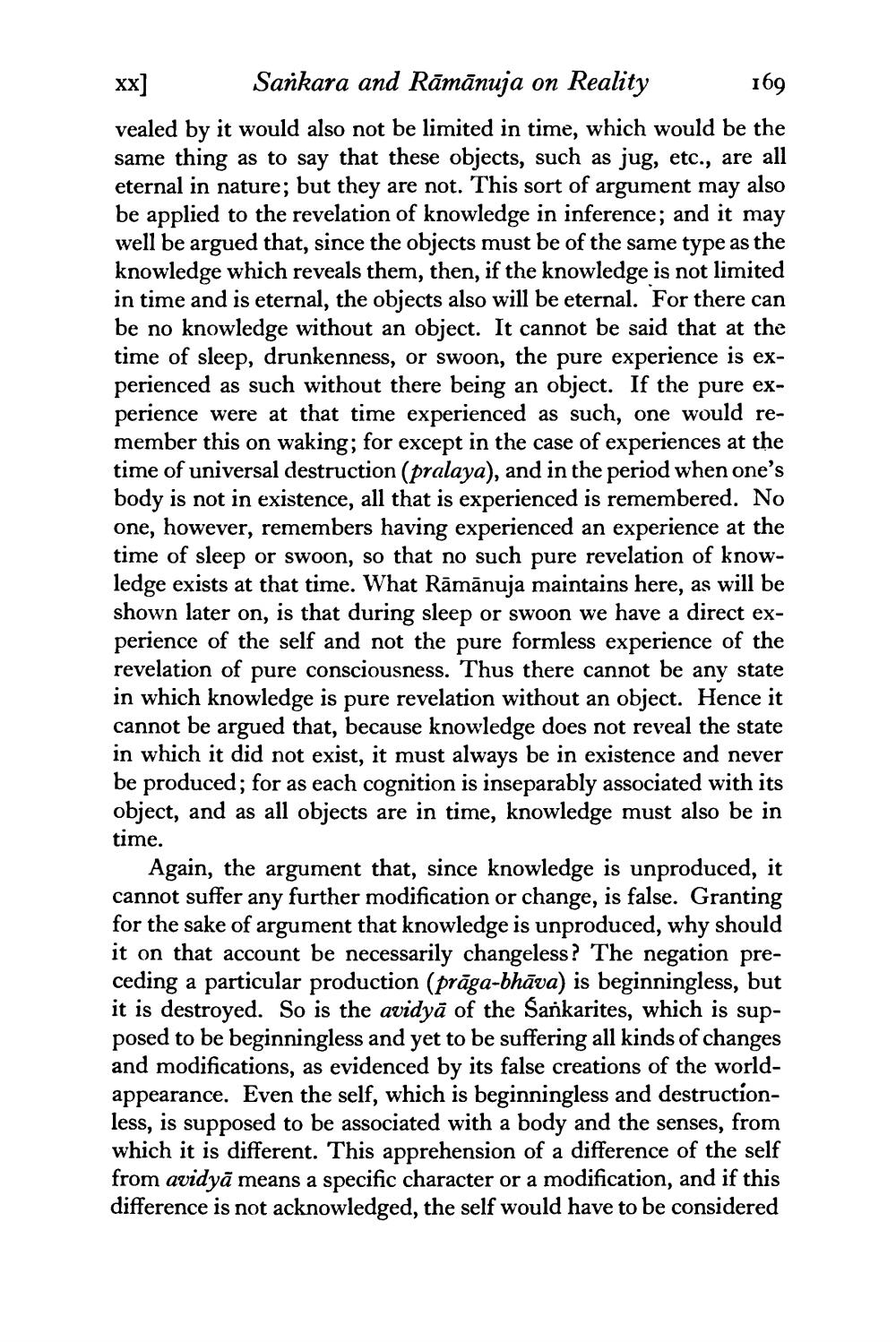________________
xx] Sankara and Rāmānuja on Reality 169 vealed by it would also not be limited in time, which would be the same thing as to say that these objects, such as jug, etc., are all eternal in nature; but they are not. This sort of argument may also be applied to the revelation of knowledge in inference; and it may well be argued that, since the objects must be of the same type as the knowledge which reveals them, then, if the knowledge is not limited in time and is eternal, the objects also will be eternal. For there can be no knowledge without an object. It cannot be said that at the time of sleep, drunkenness, or swoon, the pure experience is experienced as such without there being an object. If the pure experience were at that time experienced as such, one would remember this on waking; for except in the case of experiences at the time of universal destruction (pralaya), and in the period when one's body is not in existence, all that is experienced is remembered. No one, however, remembers having experienced an experience at the time of sleep or swoon, so that no such pure revelation of knowledge exists at that time. What Rāmānuja maintains here, as will be shown later on, is that during sleep or swoon we have a direct experience of the self and not the pure formless experience of the revelation of pure consciousness. Thus there cannot be any state in which knowledge is pure revelation without an object. Hence it cannot be argued that, because knowledge does not reveal the state in which it did not exist, it must always be in existence and never be produced; for as each cognition is inseparably associated with its object, and as all objects are in time, knowledge must also be in time.
Again, the argument that, since knowledge is unproduced, it cannot suffer any further modification or change, is false. Granting for the sake of argument that knowledge is unproduced, why should it on that account be necessarily changeless? The negation preceding a particular production (prāga-bhāva) is beginningless, but it is destroyed. So is the avidyā of the Sankarites, which is supposed to be beginningless and yet to be suffering all kinds of changes and modifications, as evidenced by its false creations of the worldappearance. Even the self, which is beginningless and destructionless, is supposed to be associated with a body and the senses, from which it is different. This apprehension of a difference of the self from avidyā means a specific character or a modification, and if this difference is not acknowledged, the self would have to be considered




